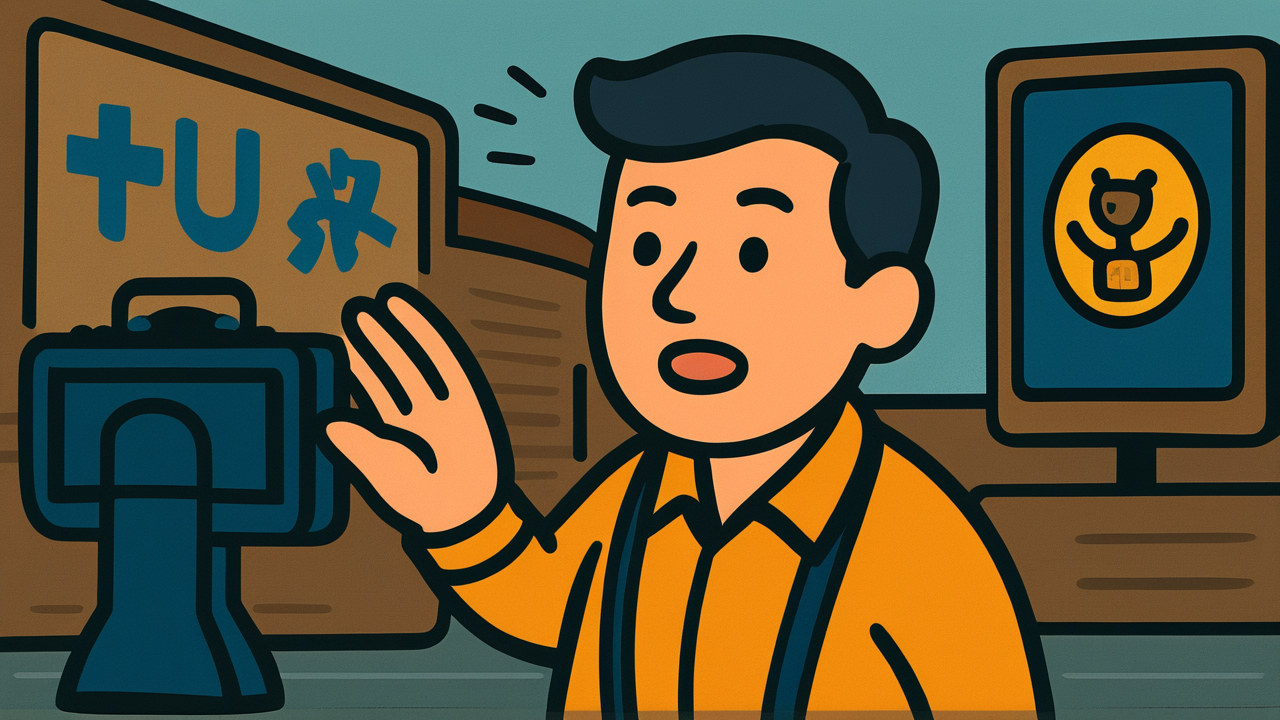How to Read “勿怪の幸い”
Mokke no saiwai
Meaning of “勿怪の幸い”
“Unexpected good fortune” refers to completely unforeseen luck or unexpectedly good things that happen.
This proverb is used when something good suddenly comes your way in an unexpected situation. It refers to luck that was neither planned nor obtained through effort—truly like “rice cakes falling from the shelf.” It’s used in situations such as when a chance encounter leads to good results, when unexpected news arrives, or when you receive unexpected kindness from someone.
The reason for using this expression also reflects humility. Rather than boasting “it’s my ability” when good things happen, it embodies the Japanese virtue of humbly accepting it as “unexpected good fortune.” Even today, it’s cherished as an expression used when blessed with unforeseen luck, such as winning the lottery or getting a job through a chance encounter.
Origin and Etymology
The origin of “Unexpected good fortune” lies in the archaic word “mokke.” “Mokke” is written as “勿怪” and originally meant “do not be suspicious,” which then evolved to mean “surprising” or “unexpected” in old Japanese.
This word “mokke” is an archaic term that has been used since the Heian period and appears in literature from that time. The “勿” in “勿怪” means “do not,” and “怪” means “to be suspicious.” While the literal translation is “do not be suspicious,” it developed to mean “unexpected” or “unthinkable.”
“Saiwai” (good fortune) means luck or happiness, as it does today. Therefore, “Unexpected good fortune” means “unexpected luck” or “unforeseen happiness.”
The background to this proverb’s establishment is thought to lie in the humble mindset of Japanese people. The cultural sensibility of not taking good things for granted but accepting them as “unexpected good fortune” is likely what created this expression and why it has been cherished for so long. It’s also interesting that the archaic word “mokke” survives only in this expression today.
Interesting Facts
The archaic word “mokke” is used in the Tohoku region as a dialect meaning “thank you.” It’s used in forms like “mokke da no” and “mokke deshita” to express gratitude for unexpected kindness, making it an interesting example of how archaic language has developed uniquely in regional areas.
The kanji notation “勿怪” is likely phonetic characters applied later. It’s believed that the word “mokke” existed first as a sound, and kanji matching its meaning were applied later, illustrating the fascinating formation of Japanese words.
Usage Examples
- I was nervous during the interview, but it was Unexpected good fortune that the interviewer was from the same school
- I was irritated by the train delay, but it became Unexpected good fortune when I coincidentally reunited with an old friend
Modern Interpretation
In modern society, the value of “Unexpected good fortune” seems to be increasing even more. Precisely because we live in an era that emphasizes planning and efficiency, the preciousness of unforeseen good fortune stands out.
With the spread of social media, chance encounters and unexpected information have become part of daily life. While algorithms deliver optimized information, truly meaningful “Unexpected good fortune” may have become more precious. Digital-age “Unexpected good fortune” has emerged, such as chance online encounters, unexpected viral content, and surprising job offers.
However, modern people also tend to view good fortune as a “natural right.” As a result of becoming accustomed to convenient services, our sensitivity to accepting small happiness as “Unexpected good fortune” may be diminishing.
On the other hand, for modern people who have experienced the COVID pandemic, gratitude for small daily events has been reconsidered. More people have realized that encounters with others and casual daily life that they took for granted were actually “Unexpected good fortune.” Precisely because uncertainty has increased in modern times, the meaning of this proverb expressing gratitude for unexpected good things may be deepening rather than diminishing.
When AI Hears This
In the IT industry, the phenomenon of “bugs becoming features” happens surprisingly often. For example, Twitter’s 140-character limit was originally a technical constraint of SMS (a type of mobile messaging), but it has now spread worldwide as a “culture of concise communication.”
This phenomenon shares an interesting structure with “mokke no saiwai.” Both follow the same three stages: “unexpected event → temporary confusion → discovery of value.”
Among programmers, the term “serendipity bug” has even emerged. Serendipity means “fortunate accidental discovery.” In fact, research shows that about 15% of bugs encountered during game development are ultimately adopted as official features.
Why does this happen? It’s because the human brain is a “genius at pattern recognition.” Even when seeing unexpected behavior, we have the ability to quickly think “this might be useful” and find value in it.
What “mokke no saiwai” teaches us is that humanity’s creative power to transform chance into value remains unchanged from past to present. Just as people in the Edo period found fortune in unexpected events, modern programmers create innovative features from technical “accidents.” In other words, the wisdom to make chance our ally is a shared human treasure that transcends time.
Lessons for Today
“Unexpected good fortune” teaches modern people that life’s beauty lies precisely in the parts that don’t go according to plan. We tend to try to control everything, but the joy that truly remains in our hearts comes in unexpected moments.
In modern society, there’s a tendency to avoid coincidence and unexpected events due to the emphasis on efficiency and planning. However, this proverb teaches us to “be prepared in heart to accept unexpected good fortune.”
In daily life, try paying attention to small coincidences. Walk a different path than usual, cherish conversations with strangers, accept invitations you hadn’t planned for. Such small changes might invite “Unexpected good fortune.”
Most importantly, it’s how we receive good things when they happen. A heart that feels “grateful” rather than “it’s natural.” An attitude that humbly accepts “I was blessed with luck” rather than “it’s my ability.” With such a mindset, life should become richer and warmer.



Comments